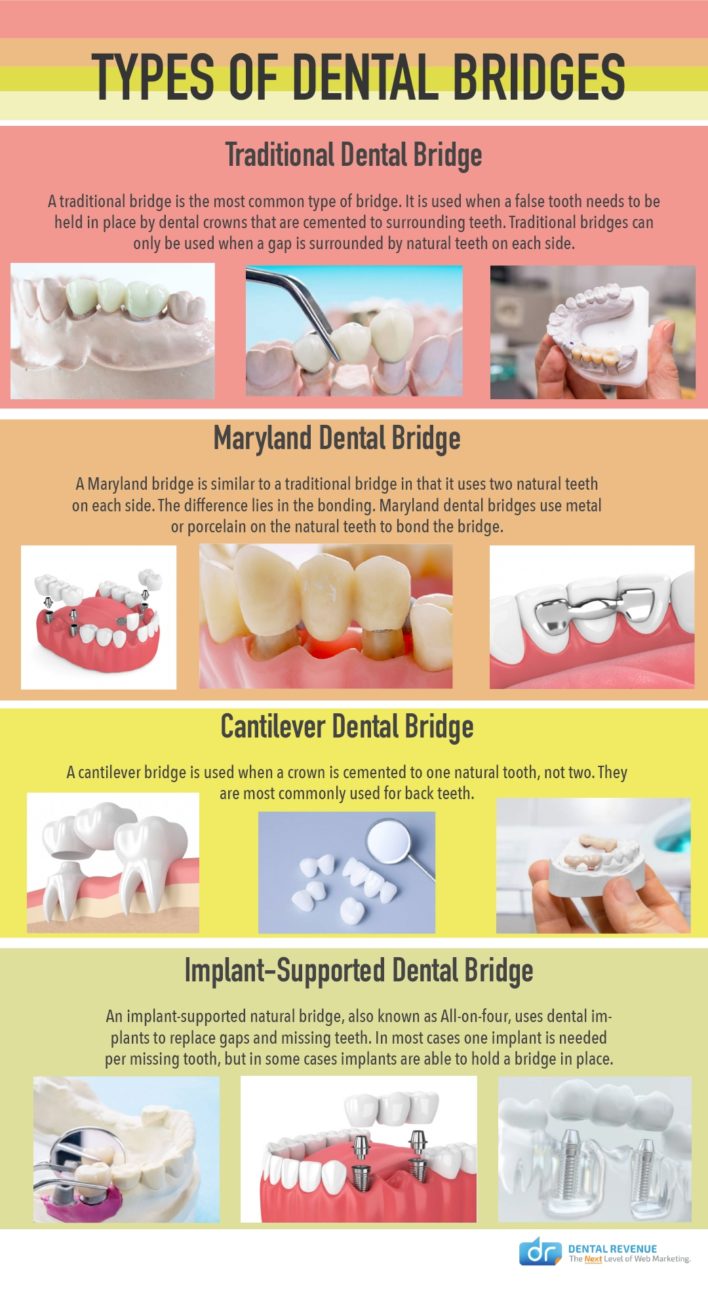A dental bridge is a prosthesis our dentists use to fill in the space missing teeth leave behind. Spaces in the mouth from missing teeth can cause teeth to shift, lead to occlusion (biting) and/or jaw problems, and spur periodontal disease. A typical dental bridge consists of a replacement tooth that we attach to two adjacent teeth.
Our dentists in Baltimore, MD, secure the bridge structure by bonding it to your mouth. Our dental bridges make a great tooth replacement option. They will safeguard the integrity of your existing teeth and help maintain your healthy and vibrant smile.
We provide dental bridges, affordable dental implants, and partial dentures. Dr. Doroshenko and Dr. Lazer will discuss with you which option will work best for your circumstances. Our Owings Mills dental office also provides restorative dentistry services to new and existing patients in Baltimore, Maryland.
Types Of Dental Bridges
Dr. Doroshenko is a Prosthodontist and will consider many factors when suggesting a dental bridge treatment versus dental implants. While dental implants are the closest thing to a natural tooth, not everyone is a good candidate. You must have adequate bone structure to support the dental implant and good oral health. Depending on the location of the missing tooth or teeth, a dental implant may not be a good choice.
Another major difference between a dental bridge vs implant is the cost. Dental implants need a more significant investment at first than dental bridges. However, dental implants are less likely to need future work.
Removable Dental Bridge
A removable dental bridge is a false tooth that your dentist can place on the upper or lower jaw. It provides stability to the teeth on either side of the gap. Generally, a removable dental bridge is only a short-term solution.
The dentist might use a removable bridge to briefly keep your teeth in place until a permanent solution is ready. Although removable dental bridges are cheaper, they don’t provide long-lasting benefits. They often need replacement or repair later on.
Fixed Dental Bridge
A traditional bridge and a fixed dental bridge procedure are essentially the same thing. In this case and as the name indicates, we permanently secure a dental bridge to your mouth. In this type of restoration, a replacement tooth connects to two dental crowns. These anchor teeth will cover the teeth on either side of the missing tooth gap.
We may need to trim down the anchor teeth to fit the crowns. This process involves altering healthy natural teeth, which can put a lot of pressure on them. Traditional dental bridges are best for keeping remaining teeth from shifting.
Implant-Supported Bridge
A dental bridge that we secure to at least two dental implants can replace a few consecutive missing teeth. An implant-secured bridge is a permanent bridge. The dentist may recommend to have a fixed dental bridge secured with implants instead of with dental crowns. Dental implants provide better long-term benefits and do not require reducing neighboring teeth.
Dental Bridge FAQs
Learn more about affordable dental bridges with answers to the following common questions.
Are dental bridges removable?
Yes, you can remove some types of bridges. For example, a temporary bridge is removable. Dentists use temporary bridges as placeholders in situations where you are waiting for your final restoration.
You might also get a temporary bridge if you have yet to decide how you want to replace your missing teeth. Most patients use temporary bridges while waiting for a dental implant.
How do you clean a dental bridge?
To effectively clean a dental bridge, first brush your teeth and bridge as usual. Spend at least two minutes brushing. After brushing, you will need to floss between and under your bridge. You can find special floss products for bridges in stores that makes flossing under the bridge easy.
Flossing is extra important when you have a bridge. For example, food particles that are under the bridge can cause plenty of issues. Issues such as bad breath, gum irritation, and gum infections can occur.
What can’t you eat with a dental bridge?
Stay away from super sticky foods, especially if your bridge is removable. All dentists agree that sticky foods can cause issues for your dental bridge. Sticky foods that get stuck under your bridge can be hard to clean out.
Regularly flossing under your bridge is crucial. Most bridge failures are because of decay in the anchor teeth and teeth next to the bridges. So, pay extra attention to flossing under your prosthesis.
How many years does a dental bridge last?
Dental bridges can last anywhere from 5 to 15 years. They can last longer with good oral care and frequent dental care checkups.
Does food get stuck under dental bridges?
Food can become stuck under a dental bridge. Spaces under the bridge can trap food particles. Regular brushing, flossing, and dental visits combat the buildup of plaque and bacteria under your bridge. Always gently floss under your bridge, or remove it before brushing your teeth.
What can you not do after the bridge procedure?
If you have a bridge, it’s best to avoid crunchy and hard foods because they can put too much pressure and cause damage. During the first few weeks after getting your bridge, eat soft foods to help ease into chewing comfortably. Steer clear of hard, chewy, and crunchy foods until your mouth adjusts to the new bridge.
Can a dentist remove and replace a dental bridge?
Your dentist can fix a loose bridge by removing, repairing, and cementing it back into place. If the dentist can’t fix the bridge, he will need to make a new one. Whether it’s a new or old bridge, your dentist can remove and replace it if there’s a problem.
Dental Bridge Repair
If you currently have a dental bridge that needs repair, contact our Owings Mills dental office. Depending on the circumstances, we may perform the dental bridge repair or offer a dental bridge replacement. Common repair methods include replacing a missing or damaged tooth on the bridge, re-cementing loose or detached crowns, or repairing cracks or chips in the bridge.
Cosmetic and Advanced Dentistry offers free consults to discuss your dental concerns and evaluate your oral health. We offer dental bridges in our Owings Mills and Baltimore area dentist office as a solution for missing teeth. Call (410) 697-6290 to schedule your free consultation or request an appointment online.

